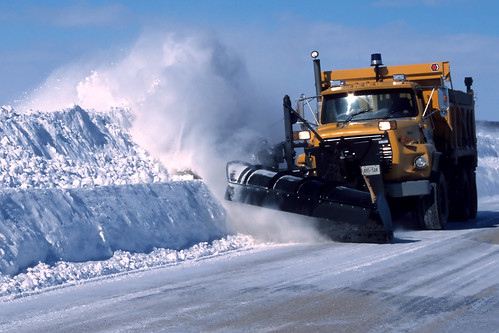In areas that are located pretty far up North snowfall is a serious issue during the winter (and even summer if you are unlucky enough). Heavy snowfalls can range from being an inconvenience like making you late for work to a danger like unplowed or salted roads or the danger of being snowed in.
Every year people are snowed in their homes and some die from lack of food or exposure. Those inhabitants in the northern regions rely on snow plow trucks to clear their driveways and roads so they can go on with their lives instead of spending the entire winter cooped up in their homes.
There are many different types of snow plow trucks, here are a couple categories:
- 3/4 ton trucks
- 1/2 ton trucks
- 1 ton trucks
- V-plow trucks
As you can tell they come in many sizes and several shapes. If you have ever had to shovel snow by hand before I am sure that you are aware that snow is heavy. This is why the size and weight of a truck are important because the bigger and heavier the truck, the more mass of snow it can push out of the way.
If you only get a foot or two of snow a year and you only have to plow less than a mile of road you may be able to buy a plow and attach it to a powerful pickup truck. In Alaska that would never work however, there you would need a much heavier truck with special snow chains to push the yards of snow out of the way.
It is important to keep in mind that the snow plow has to be traveling at a certain speed in order to launch the snow out of the road, if it merely pushed the snow then next time it snows there would be a wall of snow that would impede plowing. There are several modifications that are available on snow plow trucks. One very handy addition is the salt sprayer.
A salt sprayer is a special nozzle that spins when the truck is moving and sprays salt over the road behind the truck. The salt melts the ice and snow that is still on the road and prevents more from accumulating. Another feature necessary for snow plow trucks are the tires, since these trucks are pushing heavy snow in bad conditions and on slippery roads, they need to have large tires and chains to provide traction so the snow plow can move forward and not slide off the roads.
John lives up north and often finds that snow plow trucks are his saving grace when it comes to enjoying a fine winter day. Not only do they clear they snow away, they'll also keep the ice off, which leads to increased safety when driving.
Article Source: http://EzineArticles.com/?expert=Jonathan_Rice
